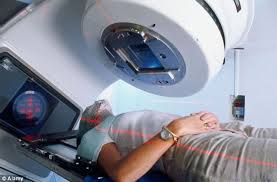The dangers of stress and anxiety in addiction
The dangers of stress and anxiety in addiction: Why this association must be discouraged
For a couple of times we have been discussing the effects of stress, depression and anxiety in relation to substance abuse and we were able to look at certain health conditions including, cancer, heart diseases, stroke and the effect of these problems on immunity. From the study, it was very evident that stress is a very long bridge that connects the body to various illnesses. Without leaving any stone unturned, we want to progress on that discussion sighting the dangers of stress and anxiety in addiction. Our focus is going to be on the following health conditions:
- Gastrointestinal Problems
- Eating and Stress
- Diabetes
- Pain
- Sleep Disturbances
- Sexual and Reproductive Dysfunction
- Memory, Concentration, and Learning
These are not conditions that anyone would wish to associate with more so when the individual is also struggling with drug addiction of any level. I know that a lot is being done to salvage the situation and the prevalence of addiction, but even as those efforts are being made, what is you individual contribution to those efforts? If you put substance abuse aside for a while you realize that these listed health conditions are not friendly to humanity yet they are much more resonated by stress, depression, anxiety and drug addiction. On our part as professionals from AWAREmed Health and Wellness Resource Center under the able leadership of doctor Dalal Akoury, we are working with like minded people in this fight against the scourge of addiction. We would wish that if we are to win this fight, then we all need to pool together and join forces to deliver the much needed victory to ourselves, families and the society. Therefore if you are struggling with any of the conditions named, you may want to start the journey by scheduling for an appointment with doctor Dalal Akoury today for the commencement of your recovery.
The dangers of stress and anxiety in addiction: Gastrointestinal Problems
The brain and intestines are closely related, and are controlled by many of the same hormones and parts of the nervous system. Indeed, some research suggests that the gut itself has features of a primitive brain. It is not surprising then that prolonged stress can disrupt the digestive system, irritating the large intestine and causing diarrhea, constipation, cramping, and bloating. Excessive production of digestive acids in the stomach may cause a painful burning.
Irritable Bowel Syndrome – Irritable bowel syndrome (or spastic colon) is strongly related to stress. With this condition, the large intestine becomes irritated, and its muscular contractions are spastic rather than smooth and wave-like. The abdomen is bloated, and the patient experiences cramping and alternating periods of constipation and diarrhea. Sleep disturbances due to stress can make irritable bowel syndrome even worse.
Peptic Ulcers – It is now well established that most peptic ulcers are caused by H. pylori bacteria or the use of non-steroidal anti-inflammatory (NSAID) medications (such as aspirin and ibuprofen). Nevertheless, studies still suggest that stress may predispose a person with H. pylori to ulcers.
Inflammatory Bowel Disease – Although stress is not a cause of inflammatory bowel disease (Crohn’s disease or ulcerative colitis), there are reports of an association between stress and symptom flare-ups.
The dangers of stress and anxiety in addiction: Eating and Stress
Stress can have varying effects on eating problems and weight like for example:
Weight Gain – Often stress is related to weight gain and obesity. Many people develop cravings for salt, fat, and sugar to counteract tension. As a result, they gain weight. Weight gain can occur even with a healthy diet, however, in some people who are exposed to stress. In addition, the weight gained is often abdominal fat, which increases the risk of diabetes and heart problems.
The release of cortisol, a major stress hormone, appears to boost abdominal fat and may be the primary connection between stress and weight gain. Cortisol is a glucocorticoid. These hormones, along with insulin, appear to be responsible for stress-related food cravings. Evidence suggests that hormonally induced cravings for “comfort foods” may have a biological benefit for managing stress. Eating comfort foods appears to reduce the negative hormonal and behavioral changes associated with stress, which might lessen the impact of stress on an individual. Carbohydrates in particular may increase levels of tryptophan and large neutral amino acids. This leads to more production of the chemical messenger serotonin, which might improve mood and performance under stress.
There may be a “reward-based stress eating” model. In this theory, stress and tasty, high-calorie foods cause the brain to make chemicals called endogenous opioids. These neurotransmitters help protect against the harmful effects of stress by slowing activity of a brain process called the hypothalamic-pituitary-adrenal (HPA) axis, thus weakening the stress response. Repeated stimulation of the reward pathways through stress-induced HPA stimulation, eating tasty food, or both, may lead to changes in the brain that cause compulsive overeating.
Research findings indicate that overeating may be triggered by different stressors in men and women. However women tend to put on extra pounds when dealing with financial and work problems, as well as strained family relationships. Men gain more weight from lack of decision authority at work and difficulty in learning new skills on the job.
Eating Disorders – Chronically elevated levels of stress chemicals have been observed in patients with anorexia and bulimia. Some studies, however, have not found any strong link between stress and eating disorders. More research is needed to determine whether changes in stress hormones are a cause or a result of eating disorders.
The dangers of stress and anxiety in addiction: Diabetes
Stress can exacerbate existing diabetes by impairing the patient’s ability to manage the disease effectively. Therefore when stress management is becoming a problem to you, then you stand a greater risk of contracting some of these health conditions we have discussed and even those that we are yet to discuss. I don’t know what you may be going through but if this article is describing your situation then you need not to lose hope because help is right before you. The formation of AWAREmed Health and Wellness Resource Center was intended for you. Take this opportunity and call 843 213 1480 doctor Akoury today for professional advice on all that you may be going through in relation to the dangers of stress and anxiety in addiction and she will be able to help you in the most professional way to have your life and comfort back.
The dangers of stress and anxiety in addiction: Why this association must be discouraged



 Oxytocin is a popular hormone. This it owes to its pleasurable feelings and good effects that it has physiologically or physically on both men and women. The effects of oxytocin on behavior and feelings of humans originate from the brain. The oxytocin hormone is produced by the hypothalamus after which it is transferred into the pituitary glands from where it is released into the bloodstream. The oxytocin hormone has its receptors in all the body parts. According to the
Oxytocin is a popular hormone. This it owes to its pleasurable feelings and good effects that it has physiologically or physically on both men and women. The effects of oxytocin on behavior and feelings of humans originate from the brain. The oxytocin hormone is produced by the hypothalamus after which it is transferred into the pituitary glands from where it is released into the bloodstream. The oxytocin hormone has its receptors in all the body parts. According to the  From the findings of this study, it can be seen that oxytocin can have specific effects in people with anxiety through its influence on the amygdala. More broadly, the fact that oxytocin had opposite effects in the two participant groups indicates that the neurotransmitter’s success in reducing stress and promoting social behavior depends on individual brain characteristics, which differ between those with anxiety and those without the disorder. Thus, while oxytocin continues to show promise as a potential treatment for anxiety, it may not promote positive social behaviors in everyone but still it is a choice worth trying.
From the findings of this study, it can be seen that oxytocin can have specific effects in people with anxiety through its influence on the amygdala. More broadly, the fact that oxytocin had opposite effects in the two participant groups indicates that the neurotransmitter’s success in reducing stress and promoting social behavior depends on individual brain characteristics, which differ between those with anxiety and those without the disorder. Thus, while oxytocin continues to show promise as a potential treatment for anxiety, it may not promote positive social behaviors in everyone but still it is a choice worth trying.






